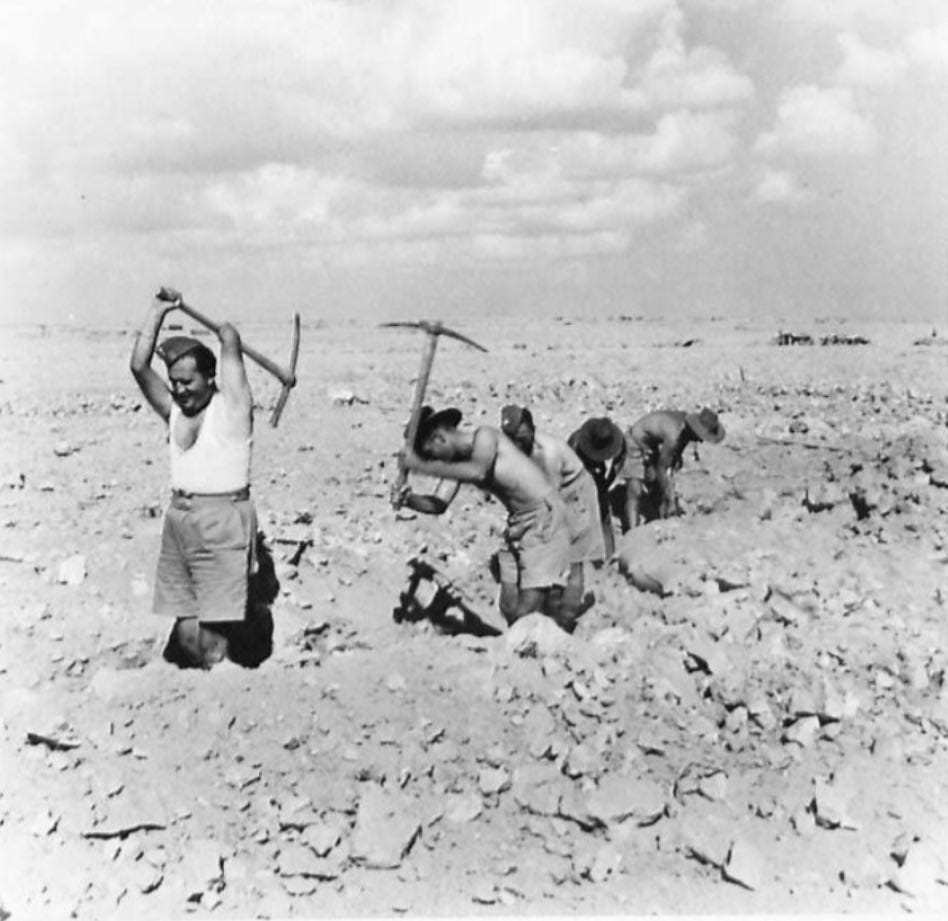Another day in Tobruk
12th September 1941: No change for the besieged forces - photographed this day
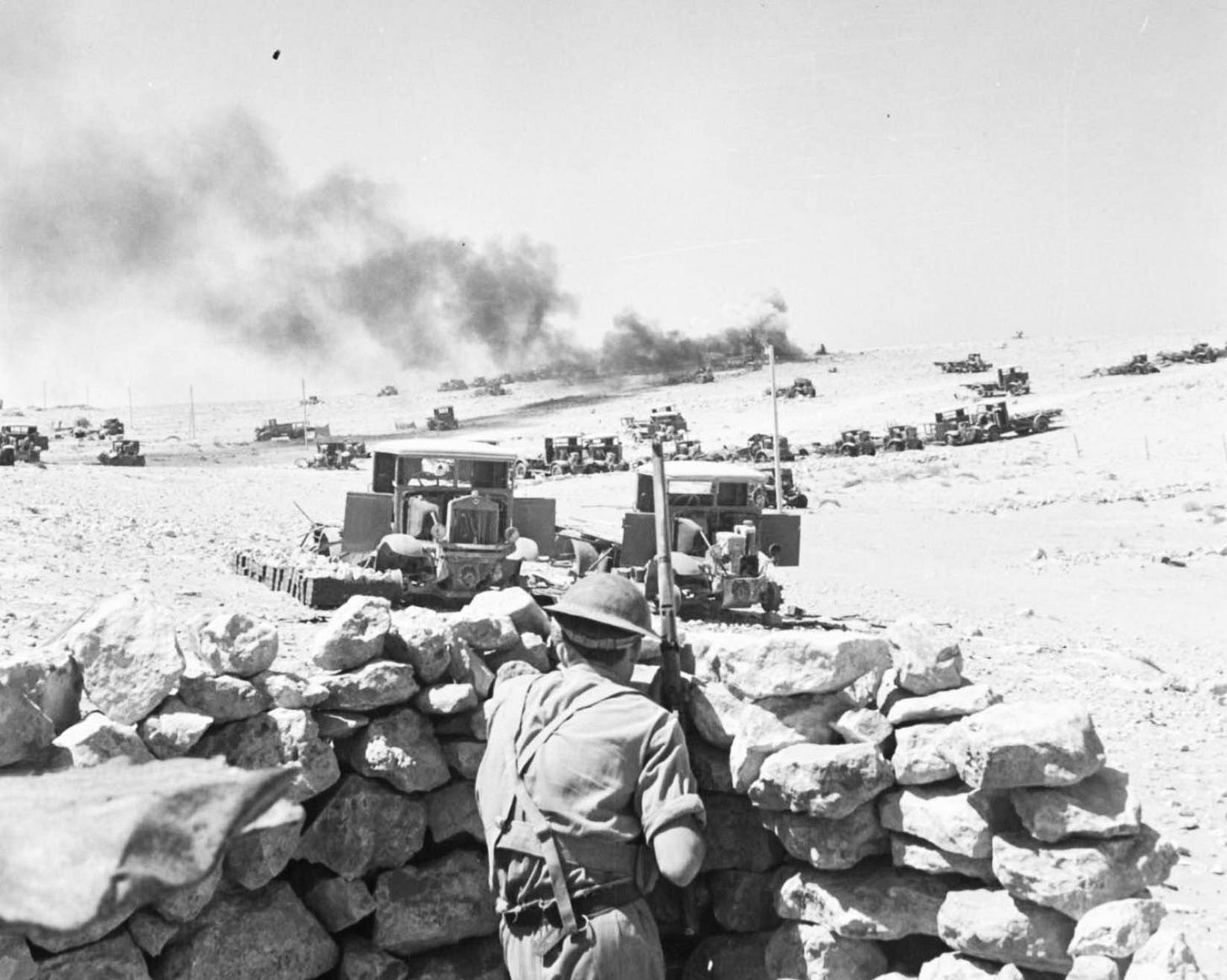
In Tobruk little had changed in the constant battle of attrition. At this stage the Australian forces were being withdrawn, replaced by the Polish Brigade.
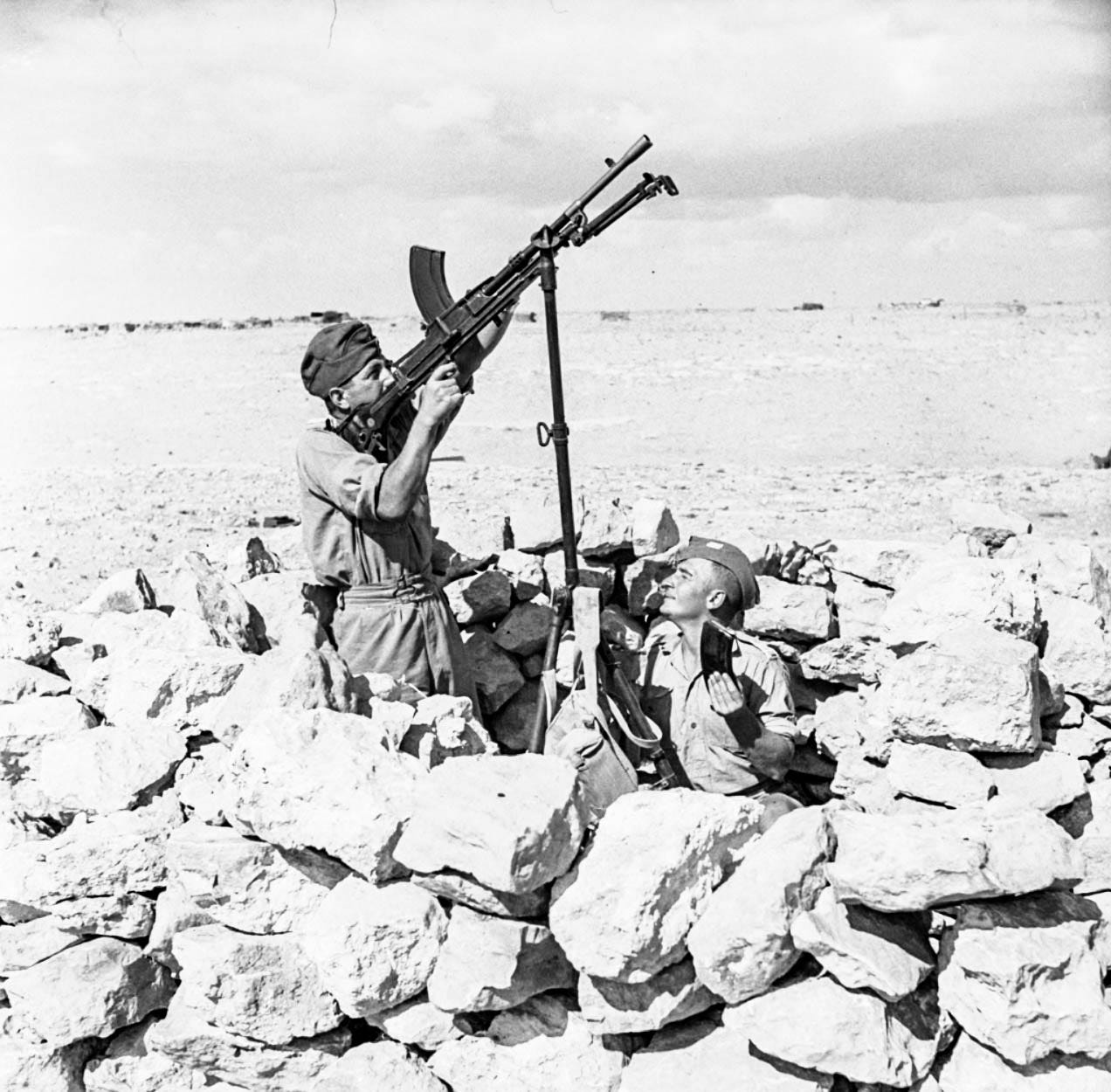
Geoffrey Nowland, besieged in Tobruk, was unable to write his diary for several days due to the bombing. It was not until the 15th that he was to record a very vivid impression of his experiences in the preceding days:
One's ear soon becomes finely attuned to the characteristic sound of a bomber's engines, and even during sleep one's subconscious mind is ever on the alert, for I have found that the barely audible note of a distant raider's engines is sufficients to summon wakefulness, which invariably anticipates the ear-splitting detonations of our biggest anti-aircraft batteries, quite a considerable distance away.
During the day we invariably receive warning of approaching raiders by the firing of the ever watchful long-range anti-aircraft batteries. Soon the uneven throb of a twin engined diesel becomes distinctly audible and the tiny shell puffs incredibly high in the heavens unerringly locate a gnat far above the clouds.
Suddenly between the dogged banging of the guns am unmistakable sound becomes audible and rapidly increases, the sound of rushing wind as of a rapidly approaching express train - probably the most dreaded sound of all the varied repertoire of battle noises, the sound of descending bombs.
‘We have, as a rule, five or six seconds to get below ground level before the WHOOSH, CRACK, repeated in rapid succession perhaps nine or ten times; each detonation louder than the preceding one if the bomb string happens to be headed in our direction; accompanied by a sharp blast and the whirr of shrapnel.’
We have, as a rule, five or six seconds to get below ground level before the WHOOSH, CRACK, repeated in rapid succession perhaps nine or ten times; each detonation louder than the preceding one if the bomb string happens to be headed in our direction; accompanied by a sharp blast and the whirr of shrapnel.
The huge demolition bombs have a terrific detonation and concussion, but fortunately I have not experienced them at very close quarters.
After the last explosion we count a few seconds for safety and wait until the whine of the diving plane has receded far enough, then sit up hopefully to watch the pursuing ack'ack' shellbursts and tracers, note with relief that all of our boys are unharmed, wipe the sweat from our brows, compare notes and then promptly dismiss it from mind.
It is all in a day's work at Tobruk.1
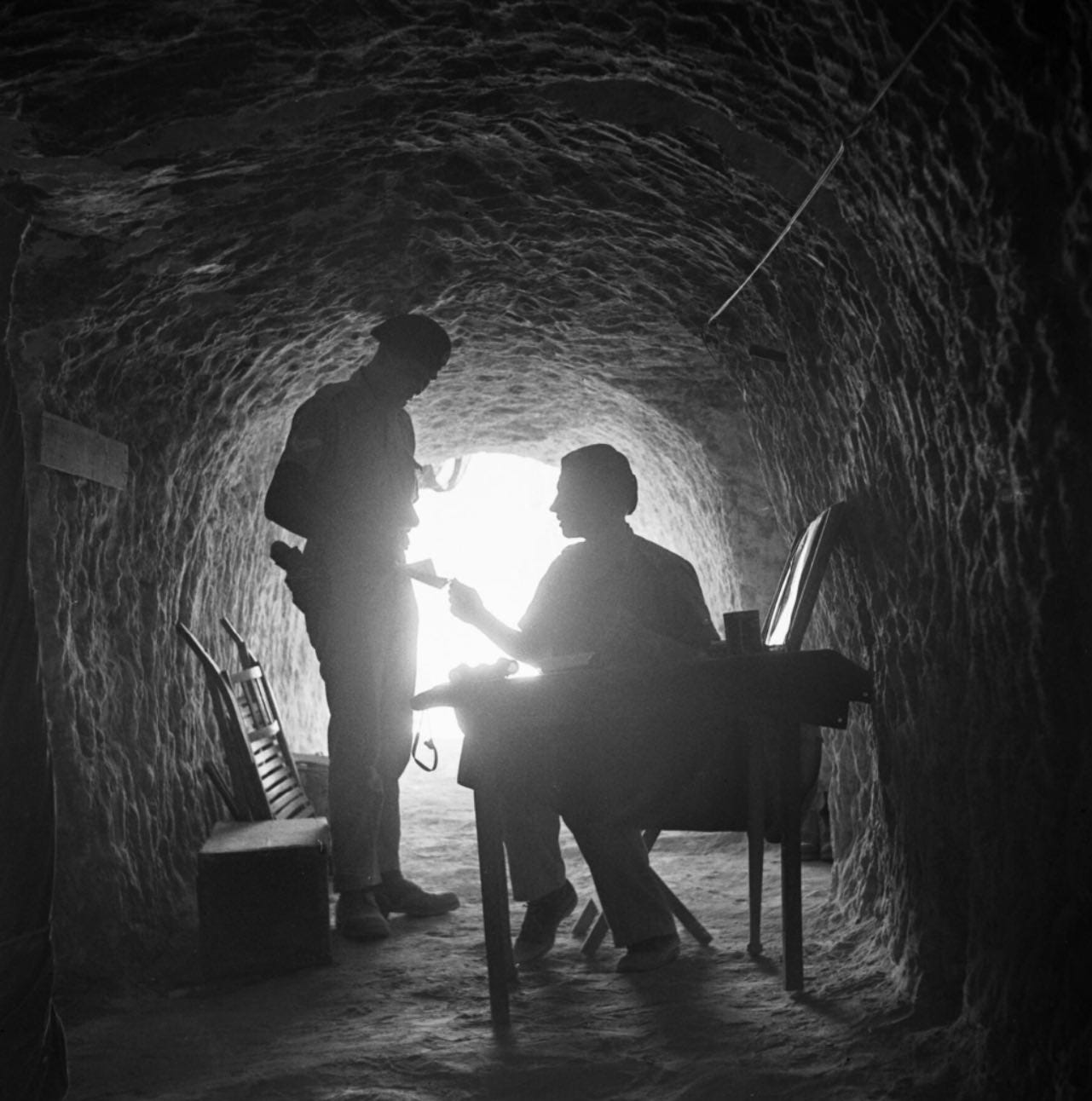
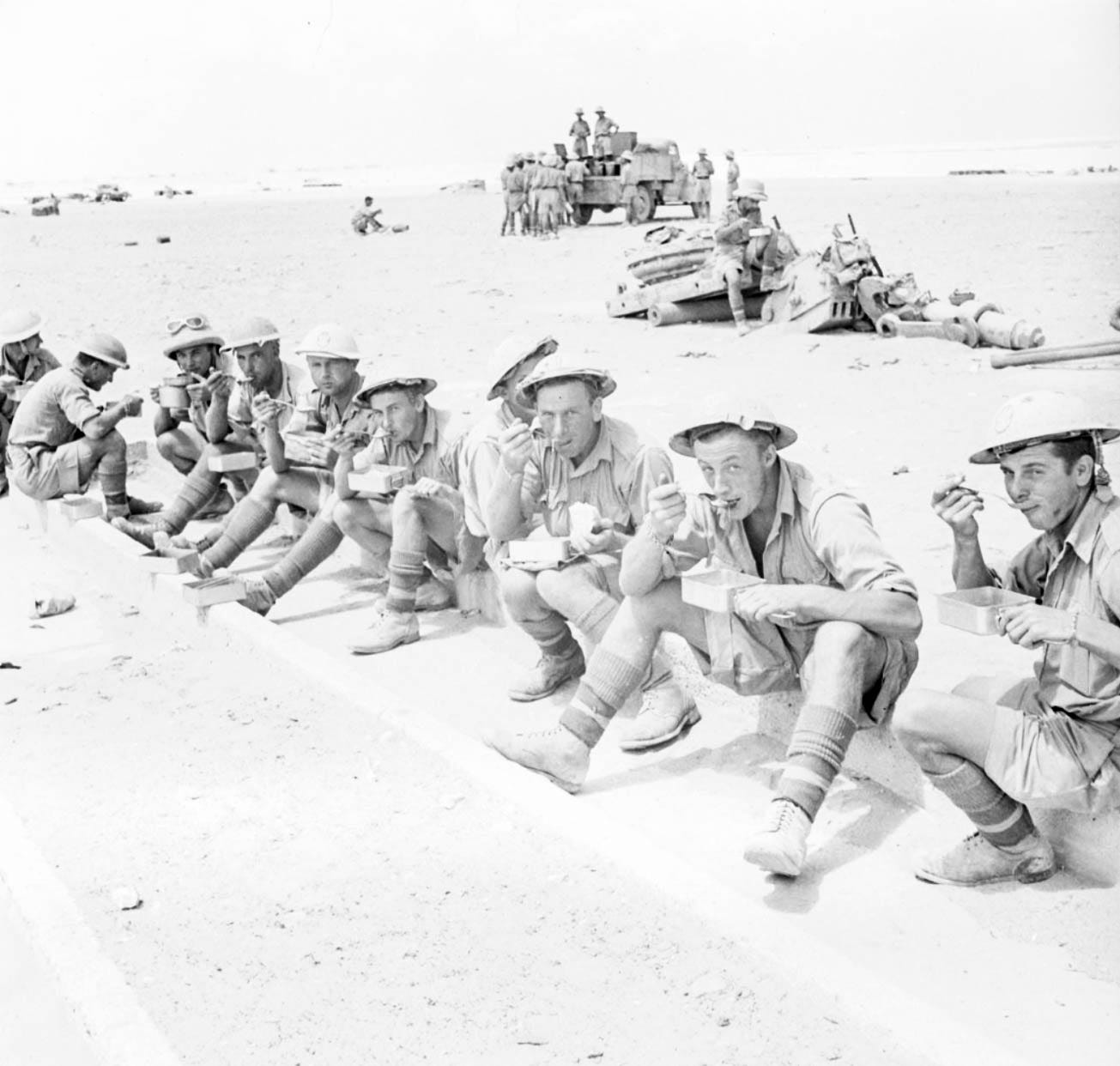
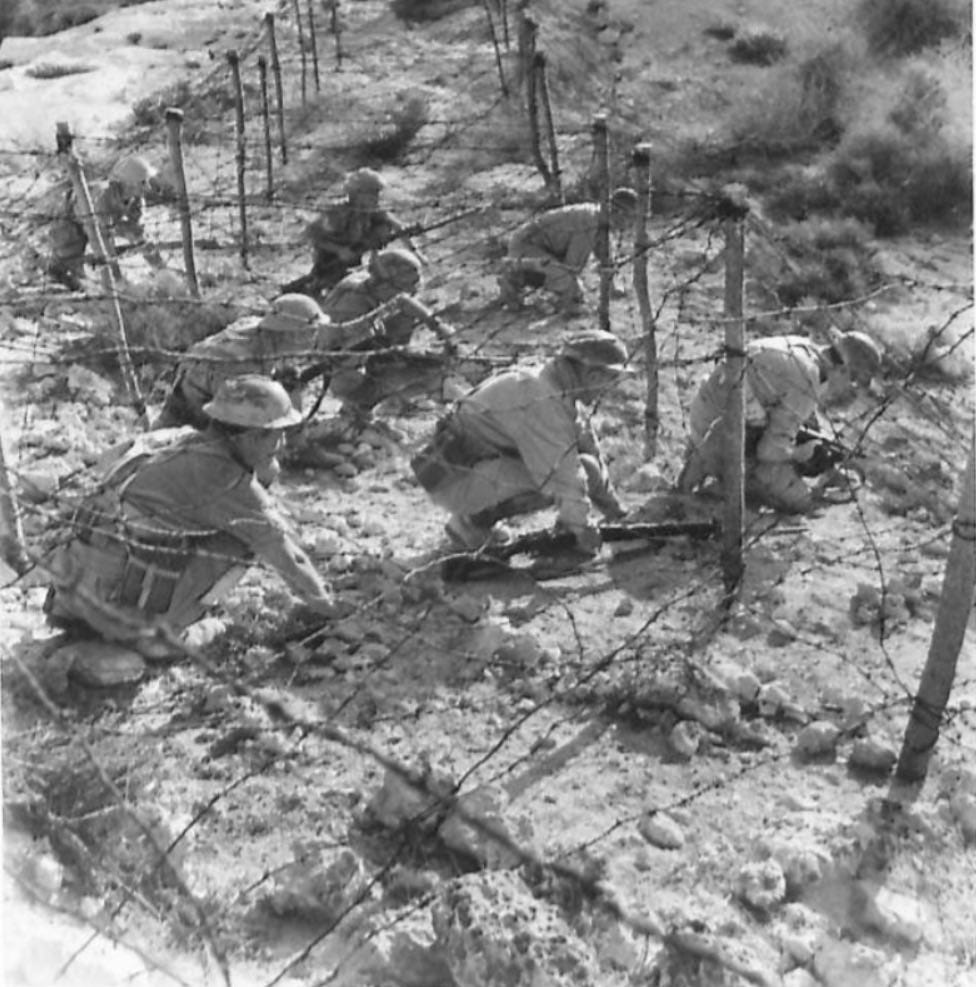
Kenneth Rankin, Editor Lest We Forget : Fifty Years On


